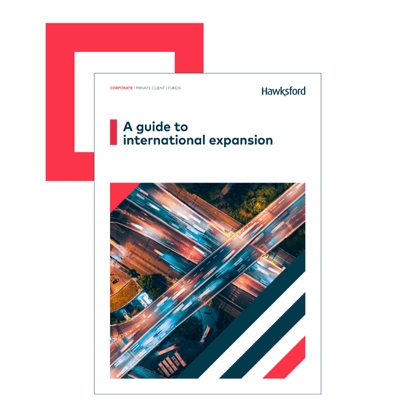From 1 November 2025, newly incorporated Singapore companies voluntarily registering for the goods and services tax (GST) must use InvoiceNow for invoicing purposes.
Mandated by the Inland Revenue Authority of Singapore (IRAS), InvoiceNow is a nationwide e-invoicing initiative and will be important for future tax compliance.
We also foresee that in time, InvoiceNow will eventually apply to all businesses as part of the IRAS’ efforts to digitalise and optimise tax administration. Acting now can therefore put your business in a stronger position to stay compliant ahead of the specified deadlines. In this article, we cover:
- E-invoicing in Singapore: implementation timeline
- What is InvoiceNow?
- Steps to comply with the InvoiceNow e-invoicing requirement
- How we can help with InvoiceNow and GST compliance
- FAQs about e-invoicing, InvoiceNow and GST compliance in Singapore
E-invoicing in Singapore: implementation timeline
The IRAS is facilitating the shift towards e-invoicing in phases, starting with a soft launch to allow early adopters to become familiar with the InvoiceNow system. Its use will then become compulsory for all new voluntary GST registrants starting 1 April 2026.
The key dates are as follows:
| Key dates | Implementation of GST InvoiceNow requirement |
|---|---|
| 1 May 2025 | If you are GST-registered or planning to apply, you may opt to start using InvoiceNow to transmit your invoice data. |
| 1 November 2025 | If you are a newly incorporated company (i.e. incorporated on or after 1 May 2025) voluntarily registering for GST, you will be required to use InvoiceNow. |
| 1 April 2026 | If you are a new voluntary GST registrant, adoption of InvoiceNow will be mandatory. |
In other words, if you’re registering for GST on or after 1 April 2026, using InvoiceNow will be a mandatory requirement to fulfil with the IRAS.
What is InvoiceNow?
InvoiceNow, introduced by the Infocomm Media Development Authority (IMDA), is Singapore’s secure e-invoicing network designed to simplify invoice processing for businesses. Built on the internationally recognised Peppol standard, it enables invoices to be sent in a consistent digital format across different accounting systems, making the process faster and less prone to errors.
What is the GST InvoiceNow requirement?
The IRAS will require invoice data to be transmitted using an IMDA-accredited InvoiceNow-Ready Solution. This data will be used to support the transactions you report in your GST return, including:
- Standard-rated supplies
- Zero-rated supplies
- Exempt supplies
- Standard-rated purchases
- Zero-rated purchases
Invoice data will be drawn from documents used in your day-to-day operations such as tax invoices, simplified tax invoices, receipts with serial numbers, debit notes and credit notes. With this information being shared digitally with the IRAS, subsequent tax compliance will be more accurate and straightforward.
You must, however, ensure the data is transmitted by the earlier of two dates: either on the day you file your GST return or on the official filing due date for that return.
Businesses excluded from the GST InvoiceNow requirement
Note not every GST-registered entity is subject to the new InvoiceNow requirement. You may be exempt if you are:
- GST-registered under the Reverse Charge regime; or
- an overseas entity registered under the Overseas Vendor Registration (OVR) Pay-only regime and OVR full regime.
Steps to comply with the InvoiceNow e-invoicing requirement
Fortunately, many widely-used cloud accounting platforms, such as Xero, are already InvoiceNow-ready. If you’re already working with an InvoiceNow-Ready Solution Provider (IRSP), they may be able to register your business in the SG Peppol Directory.
Once registered, you will receive a Peppol ID, which allows you to continue using their platform to transmit invoices to the IRAS.
Alternatively, if you have not yet integrated an accounting solution into your business and need support in meeting this new requirement, our Singapore-based team can help you make the shift to e-invoicing.
How we can help with InvoiceNow and GST compliance
As an IMDA-accredited InvoiceNow-Ready Solution Provider (IRSP) Reseller for Xero, we continue to be a partner that our clients can trust for tax and accounting in Singapore. Our team can assist you with the following steps:
- Registering your business on the SG Peppol Directory
- Getting your Peppol ID linked to your Unique Entity Number (UEN)
- Setting up and integrating Xero, a certified InvoiceNow-Ready accounting solution
- Automating invoice submission to the IRAS through Xero’s e-invoicing features
- Monitoring invoice delivery status and set payment reminders
Adopting e-invoicing early will allow you to streamline your processes and reduce the effort involved in GST reporting. For support with preparing your business for InvoiceNow and meeting the IRAS’ requirements, please get in touch with us.
FAQs about e-invoicing, InvoiceNow and GST compliance in Singapore
What is e-invoice in Singapore and how is it different from paper or PDF invoices?
Unlike a PDF or printed invoice, which the recipient must manually key into an accounting system, an e-invoice is delivered as a structured data file that integrates automatically. Invoice information is captured instantly, which will remove the need for manual input. E-invoicing can also address issues such as invoices being overlooked in mailboxes, left unattended when staff are away, or undelivered due to incorrect email addresses.
What are the benefits of e-invoicing?
If you have business operations in Singapore, e-invoicing via InvoiceNow can provide the following benefits:
- Streamlined invoicing with reduced manual entry
- Increased data security
- Minimised errors in processing
- Faster invoice transmission and payment cycles
- Adherence to Singapore’s digitalisation standards
How does e-invoicing help with GST compliance in Singapore?
All outgoing and incoming invoices will be transmitted directly to the IRAS, which would make your GST reporting more accurate and transparent. The IRAS can then cross-check the data so you may face fewer and less intensive audits. Should an audit be required, it may be completed faster as much of the information will already be on hand.
With some IRSPs, you will be notified if a non-GST registered supplier wrongly charges GST. If you regularly claim GST refunds, you could also receive them much quicker as the verification process will be streamlined with readily available e-invoice data.
Who must use InvoiceNow under the IRAS requirement and when does the requirement start?
The new InvoiceNow requirement will first apply to businesses that register for GST voluntarily:
- From 1 November 2025: For companies incorporated in the past six months
- From 1 April 2026: For all new voluntary GST registrants
How long does onboarding to Xero InvoiceNow‑ready solution take?
The timeline largely depends on how quickly you receive CorpPass access, as this is needed for your Peppol ID registration. Once that is completed, onboarding through Xero to activate e-invoicing can be done immediately.
What types of invoices can be issued through Xero?
Through Xero, you’re able to issue standard sales invoices, automated recurring invoices, pro forma invoices for preliminary pricing and tax invoices that include sales tax details, such as the GST registration number and applicable GST rate. The system also allows sales quotes to be generated and converted into invoices upon customer confirmation.

Speak to our experts today
Explore how our corporate services can elevate your business needs
Updated on






